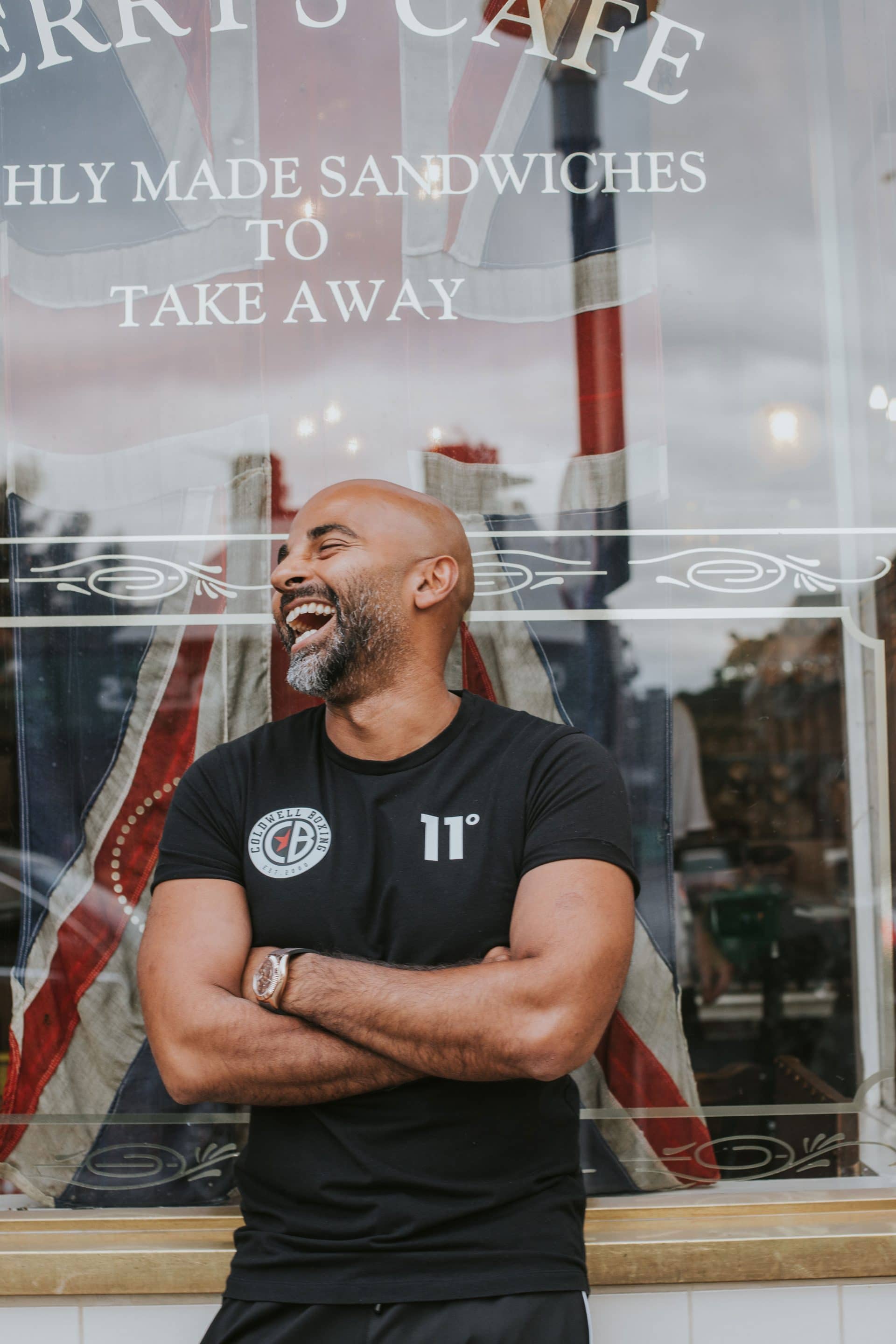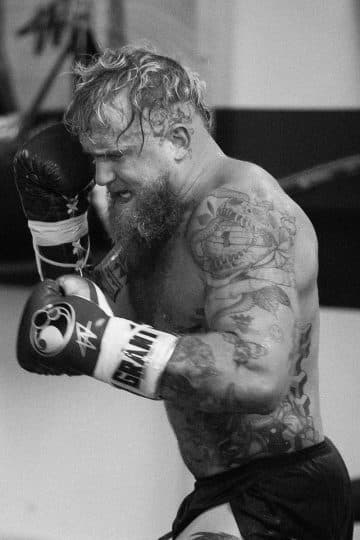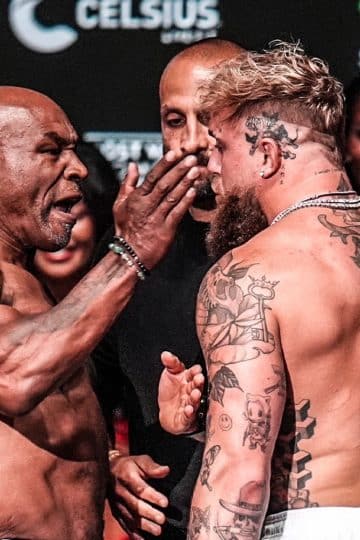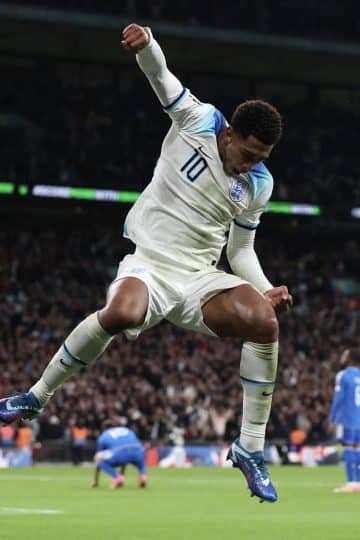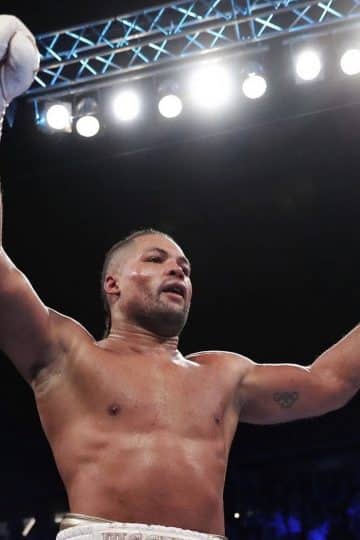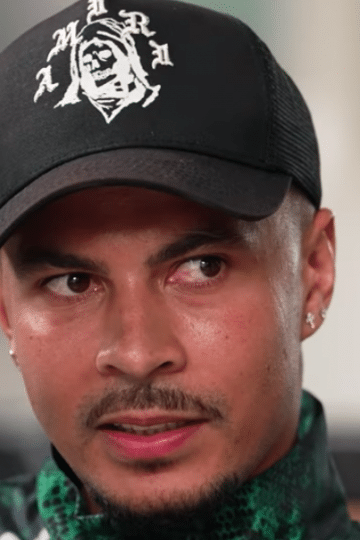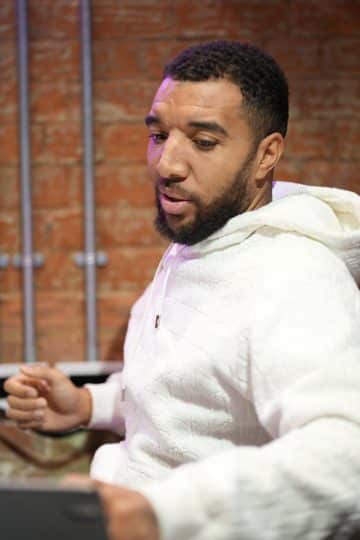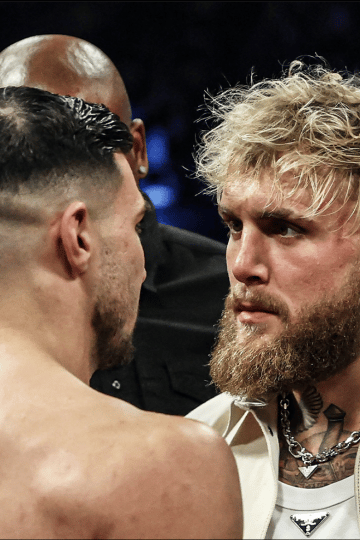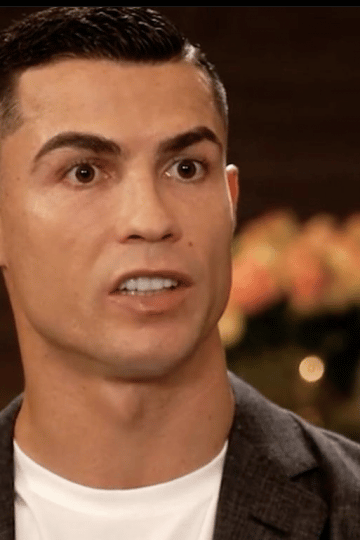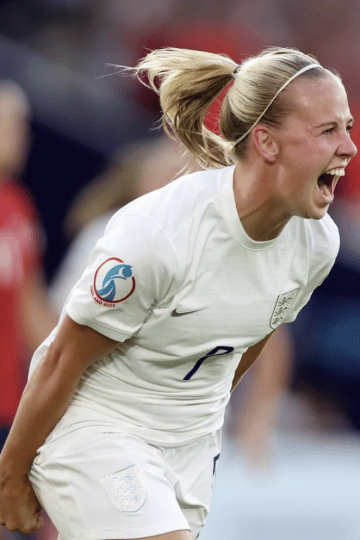“I always wanted to be the best I could be.”
Sport
Boxing coach and Sky Sports man Dave Coldwell talks going from being bullied at school to entering the fight game, and the mental side of training fighters. One of the most inspiring interviews you will read.
Dave Coldwell is one of the smartest, most innovative people working in boxing today. But perhaps his most crucial asset in working with fighters is his empathy. He is sensitive to how they feel, and is able to shape their mindset for success. This comes from a number of things, as we shall see, including a difficult experience as a kid, and his own ups and downs as a fighter. Having worked with everyone from Dillian Whyte and David Haye, he is admired for his expertise but it is perhaps his work managing and coaching young fighters which he is most proud of, and as this highly inspirational read shows, his philosophies around aiming to be the best in your field can change your life, no matter what you do. Enjoy…
How did you get into boxing?
The reason I started boxing was because I was one of the cliched school wimps. At the comprehensive school I was at there was 1500 kids and there were literally 3 others that weren’t white. I had it tough because of that but also because I was quite small. At that stage my dad didn’t have a job, so I was on a dinner ticket, wearing hand-me-down clothes, trousers that are too short, and I was getting grief for that too. I got it from all angles as far as school was concerned, and things were difficult at home as well because of the relationship with my mother. So I wanted to box by the time I was 10. I used to get up and sneak to watch Mike Tyson fight, or Sugar Ray Leonard when he boxed Marvin Hagler, I was mesmerised. I wanted to box but my mother would never allow me to.
I got to 15 and one day at school I got locked up in a metalwork cupboard. It was open backed with just some bars at the back, and they were throwing paper towels through the back at my feet. The next minute, the paper towels are on fire. I’ve got fire at my feet in a little cupboard, and I basically just lost it. It was at that point I thought, ‘it’s alright getting bullied, scared, intimidated when you’re 15, but what happens when you grow up?’ At that time I didn’t think about having daughters, I just thought I’d have a son, so my mind went to, ‘what happens if you’re walking down the street with my boy and someone that bullied me was there and I’m intimidated? How can I teach my kid to not be the same way? I’ve got to take a stand.’
I remember I met Johnny Nelson when he was coming through, he might have been British champion at the time, but he used to do these things the council used to put on in parks, sports activities for kids in the summer holidays. I met Johnny when he was doing one of those and it stuck in my mind. He said, ‘Come down to Brendan Ingle’s guy.’ So I looked for Brendan Ingle’s gym, found it, and that’s why I started boxing.
The things that I learnt in that boxing gym, and the things I learnt from what I went through as a child, do have bearing on how I bring my fighters through. They have a bearing on how I can understand the mental demons, the stresses and pressures that fighters have. Not everybody is born to be the most confident person in the world, so I can relate to guys that don’t have the confidence, that are scared of everything, that do have issues outside the boxing gym. And that helps with how I communicate with them.
So you’re dealing with the mental side not just the physical? How does that practically work with people in sessions?
First of all, boxing’s a very demanding sport physically. Just on that alone, the physical punishment you take puts a lot of pressure on mentally. You wake up in a morning and feel the aches from yesterday’s fight session or from yesterday’s weight training and you know you have to go and spar now. You don’t think you can physically do it. You may be trying to make a weight so you’re depleting your calories. So that takes an element of toughness and it takes a capacity for you to be able to adjust your mindset from thinking I can’t do this, I’m not feeling it today, to switching on, thinking I’ve got to do this, I’ve got to go and perform, I’ve got to do this session.
Some people they can flick that switch but I can read a fighter when he walks through the door. What kind of mood he’s in. And you have to adjust your session depending on how they’re feeling. People talk about beasting fighters and running them into the ground – you can’t do that because not only are you liable to cause injuries, but mentally you’re going to drain them. You add pressure to how they’re feeling, you add the doubts and that can spiral into a fighter that not only is low on confidence to start off with but you can also have a fighter that is confident who all of a sudden you start depleting them mentally, eroding that confidence, which makes the job so much harder.
Is purpose necessary within here, a goal or a title, to make sure that does encourage people to get up in a morning and do those things?
I always wanted to be the best. Funnily enough I had a chat with my fighters about it this morning. I always say to them, if you’re in boxing, it requires sacrifice. Football too – people think footballers have it easy but they’ve had to put a lot of work into what they do. It’s the same with any sport, anything. Snooker players at the top have put thousands of hours into what they need to do. If you’re in it just for money – you want to drive a nice car, or wear a nice watch – if that’s your motivation factor, and you’ve gone from being skint to being comfortable, that’s when the foot comes just a little bit off that pedal. When you go from skint to where you are more comfortable, you’re rocking around in your nice big car, you’re living in a nice big house, and you don’t have to worry about the bills, that’s when you see people tail off. They show massive potential where you think they can become great but then they just end up being very good. Now very good’s an outstanding achievement but in boxing or football there are countless fighters and countless players that are very good but they’re not the best.
I always find that when I speak to people who have hit the pinnacle, that have become world champion, that have become top premiership players, or it doesn’t have to be sport it could be business, anything – when I speak to people at the top who have been so successful, their motivation isn’t money, their motivation is to be the best. Call it ego, call it whatever you want, they want to be the best.
Because what happens when you want to be the best, your money for fights starts coming in, you start to become comfortable but that motivation to get up in the morning, to give it absolutely everything, to keep on your diet, to keep putting your strength conditioning sessions going, to give 100% every single day to get the best out of yourself. That desire is still there, is always there. That’s a massive advantage for these people at the top of their field, whatever it is. People like Elon Musk, worth billions, he doesn’t have to worry about money but he’s constantly pushing himself because he wants to be the best that he can be. It’s not even about being better than the next man – some people thrive off that – but some people just want to push themselves to see how far they can get, to see how good they can be at something. And they’re the ones that are always motivated who’ll always battle through whatever comes at them.
This is why I say a lot of British fighters will win a title and because we’re a little island the fame is there quickly, with the endorsements, driving a nice car, so they take their foot off the pedal and are just another world champion.
But I grew up where you had people like Roy Jones, Bernard Hopkins, Oscar de la Hoya, Mayweather, staying at the top of the tree for a decade. Do you know how hard it is to stay at the top for a decade? That is serious. Because these guys are making millions per fight.
I look at Ronaldo, my boy’s a huge fan of his. Not because of what he does on the pitch necessarily but because of what he does off the pitch. The work ethic. He’s been at the top, Messi’s been at the top, it’s been those two for years. But they keep working hard. They’ve got everything they could possibly want but they keep pushing themselves. Each year, each session, each match, they keep pushing themselves. That’s a different mentality.
And sometimes it’s not just about the guy that’s ‘talented’ It’s not about the kid you look at in the gym who stands out as good. There might be a little kid in the corner of the gym that nobody notices right now but he keeps going and going and going. He’s got the mentality to look at the guy over there and not be jealous, there’s a different mentality – you never reach the pinnacle by using jealousy – but you can look at somebody and say, I want that. I want what he’s got and I’m going to work hard and push myself to the max to get what he’s got. That for me is the difference between the people who are extremely successful for a long period of time and people who are successful and then fall off. We see it in football, these potential superstar kids come along all the time, at 18,19 when they break on the scene. But by the time they hit 25 they’re just a very good footballer. They’re not the best they haven’t fulfilled that potential. So the driving force behind them wasn’t necessarily to be the best, it was because I like football and boxing and I’ve achieved something – but if you want to be the best you need to have that extra.
Is that something you try and spot in someone or something you can train into someone?
It’s not about training it into someone it’s about educating them. Especially if you’re younger. We’ve all set out with dreams and we like to chase the dreams but sometimes dreams are a little bit difficult. You can’t see how you’re going to get there. You can think this 9-5 job is safe, I’m good at this, I’m comfortable there. I’d love to do this but I’m going to do this instead because I know I can do it. It’s taking the risk, trusting yourself, backing yourself and having that mentality to chase the dream hard. You don’t just dream, you go for it, and actually put things into place.
It’s like I say to my little boy and to Jordan Gill and Hopey Price in my gym, these young fighters who are extremely talented. They’ve got the dreams of becoming world champions, but it’s not just going to be up there unattainable, it’s about every single step you take, every single session you have, to give it 100%. Because you can’t get it back.
If you turn up at the gym and go through the motions, that session is gone. So whatever amount of sessions you have in your career, you will never be as good as what you would have been if in that session you’d have given it 100%. Because each one chips away at what your potential is. If your potential is up there and you give 100% on every session then you can fulfil your potential, but if your potential is there and you give 90% on each session there’s a gap – you could have been better. Even if you’re multiple world champion, even if you’re the greatest footballer that ever lived, if there are sessions where you only gave it 80-90%, there’s a little gap where you could have actually been better.
There are certain individuals that understand that and buy into it, it drives them.
My two guys at the gym. Jordan, and Hopey, they live and breathe it. They’ve got the same mentality as me. When he came to me Jordan wasn’t the most confident of kids. Outside of his family he’d not had people believing in him. It took time for him to believe in himself. With Hopey it’s different he was a very successful young kid, he’s got confidence but it’s getting him to understand how far you can go. Even people who are confident don’t actually believe how far they can go.
My little boy is 9 years old and he has a pure winners’ mentality. With his schoolwork or football, everything. He wants to give it 100% he wants to get the best out of himself in every single situation. Only by spending time with people and talking to people does that rub off.
There’s a reason why you say to people who want to be successful: try and rub shoulders with people who are successful. They’ve all got a familiar blueprint, whether its football, or business. It’s the work ethic, it’s the drive, it’s never being satisfied with what you’ve got and wanting to push yourself. That’s how you get the best out of yourself.
Dealing with the lows then, the defeat and failure when you have the ambition pricked – how do you handle that situation?
That’s where it counts. Anybody can carry on going when they keep winning. But it takes something a bit deeper and stronger and more determined to come back from a loss.
I lost my first 8 amateur fights. So I’ve come from being a kid getting bullied and ridiculed at school to then starting boxing and keep losing. It got to the point where just before I got my gloves on I’d go into the toilets, go into a cubicle and – I’m not religious – but I’d pray and say please God let me win this fight, I just want to know what it feels like to win a fight. And then I’d go out and get beat again. I’d want to cry and sometimes I did cry, and you feel deflated and as though you’re never going to do it. But there’s a little fire inside me. I had it tough as a kid, I always thought if I could make it through that I can make it through anything. I’ll get there. I will have the life I wanted. I chased this life I’ve got, so hard. Because I didn’t give up on it, I owed myself to keep chasing. And it started with just winning one fight – I can still today remember what it felt like when I did. I was 17, now I’m 45, but I still remember the exact feeling. I stopped the kid in a minute and a half and I remember the feeling when I came back to my corner, absolutely beaming, proud.
Now Jordan, a very talented kid, all of a sudden gets a big build up by Sky – from having nothing, he breaks through, has the big build up, headlines in his own town, great, then he gets beaten. Now he made the mistake because he was ill, and he should have told me he was ill and I’d have pulled him out. But again, mentality, inexperience, the pressure of having sold £10k worth of tickets at Nottingham Ice Arena, live on Sky Sports, he did not feel that he could say I can’t fight. So he chose to go ahead thinking I’ll try to get through it and I’ll be alright. But he had nothing in him.
I pulled him out of the fight, his confidence absolutely shattered to bits, the whole of social media slagging him off. And it took a year of bringing him round. Then he got an illness that we thought would mean he’d never box again. And then lockdown happened and something switched in his mentality. I don’t know if it was the weight off his shoulders because he got told this illness may mean he couldn’t box again then he got his tests back and it was fine. Maybe it was that second shot, but it seemed the weight came off him. Physically you could notice the difference and he’s spiked. Going back into the first fight the the doubts returned because of the loss. He wins that fight, a big fight, but the second fight was up at world level, a very tough fight against the same sort of fighter as the guy that beat him, from the same gym, a lot of similarities but he boxes at a higher level. So everybody’s thinking Jordan’s going to get done again. And he didn’t, he performed great and now his confidence is up there. But it’s taken him two years to get him back.
People have to understand the knocks and the defeats, the setbacks, the upsets, the heartbreaks – if you can bring yourself through to the other side, it adds to you. Almost like bolt-ons.
We have this certain amount of confidence but when you go through the difficulties, that adds as armoury to you because if anything like that happens again you’ve got a point of reference to go through it and come out the other side.
Because you have been through difficulties you get more confidence in yourself.
I get people direct messaging me on Instagram, that are going through seriously bad times. And it always amazes me, I think surely there’s somebody around you who you can speak to – we all have people there, but it’s about having someone who you’re comfortable speaking to. Who you can open yourself up to and get a new perspective from. It’s important because we bottle up our worries in trying to figure them out, but once we speak about it we get another perspective. And if it’s the right person you’re speaking to, it’s quite a rational perspective. Once you start thinking about things rationally you find it’s not as bad as what you think, and you find there is a path out of there, it’s just from your perspective you might not be able to find the path.
What about boys behaviour in schools, you’re talking about real time spent with boys like your son to educate and support them rather than leaving them alone to get on with it…
You see I have an issue with schools where half the lessons you don’t use as an adult. Is school and the stuff they do a little outdated for the world as it is now.
And with mental health, you can stick your head in the sand as much as you want, saying they should be able to handle it. No it’s a real issue and it’s a real issue because the world today is different to how it was when I was a kid. When I was a kid it was different to how it was for my parents. We’re the first generation that has to deal with, for our kids, social media. Is there anything in schools teaching them about social media and how to handle it? I know there isn’t for my kids.
I’ve had to explain to my kids about what is out there. The abuse I get I’m quite open about with the kids, so when they get it themselves it’s not going to affect them as much. It’s not nice but this is how you deal with it. You don’t let it fester.
I think its communication. People don’t want to speak about difficult topics, especially with the kids. They want to shelter them from it but by sheltering them from it it’s leaving them open to being hurt by it.
I do think schools need to deal with that. I didn’t have that relationship with my parents, everything I learned was from my life experiences, and I just think if I had someone in school where I spend most of my day bringing me into conversations then I’d have gone through school a lot happier. It wouldn’t have stopped the kids from doing it, or stopped my mum from doing it, but it would have helped me cope with it better. It’s about teaching kids how to deal with problems.
You can’t pretend life is a Disney film where everything is going to work out beautifully, but if you can teach kids how to cope with problems, how to manage the thought processes and how to keep clear thinking. Once you cloud your brain it’s very hard to see a way out.
What have you learnt from the last year?
I’ve learned there’s things you take for granted. The amount of times my missus used to say ‘let’s take a drive to the coast,’ and I couldn’t be bothered. When you put off going away because of work and then you suddenly can’t go away it’s like I’m going to start making time to have that down time.
Are you looking forward to being ringside in front of a crowd?
That’s one thing I’ve missed, a crowd, just the fans. I’m lucky because I’ve had fighters fighting behind closed doors. But when I’m watching a fighter I manage and I’m not in the corner, and two metres away there’s Eddie Hearn, and in a normal fight in between rounds you’re talking – when you haven’t even got that, it kills it some more. When the bell goes usually you’re looking around the arena and interacting, and people shouting. The atmosphere, I’ve missed that. It’s nothing like it should be. It’s going to be so great when we have fans back.
Follow Dave on Twitter…
It’s been a great day of sparring work at the Coldwell Gym today. 🍿@Hopeyprice1 @LyonWoodstockJr @Snipertheboss @TroyWilliamson_ #boxing #sparring pic.twitter.com/F3V6qFb0Xc
— Dave Coldwell (@davidcoldwell) April 22, 2021
Trending

Join The Book of Man
Sign up to our daily newsletters to join the frontline of the revolution in masculinity.




